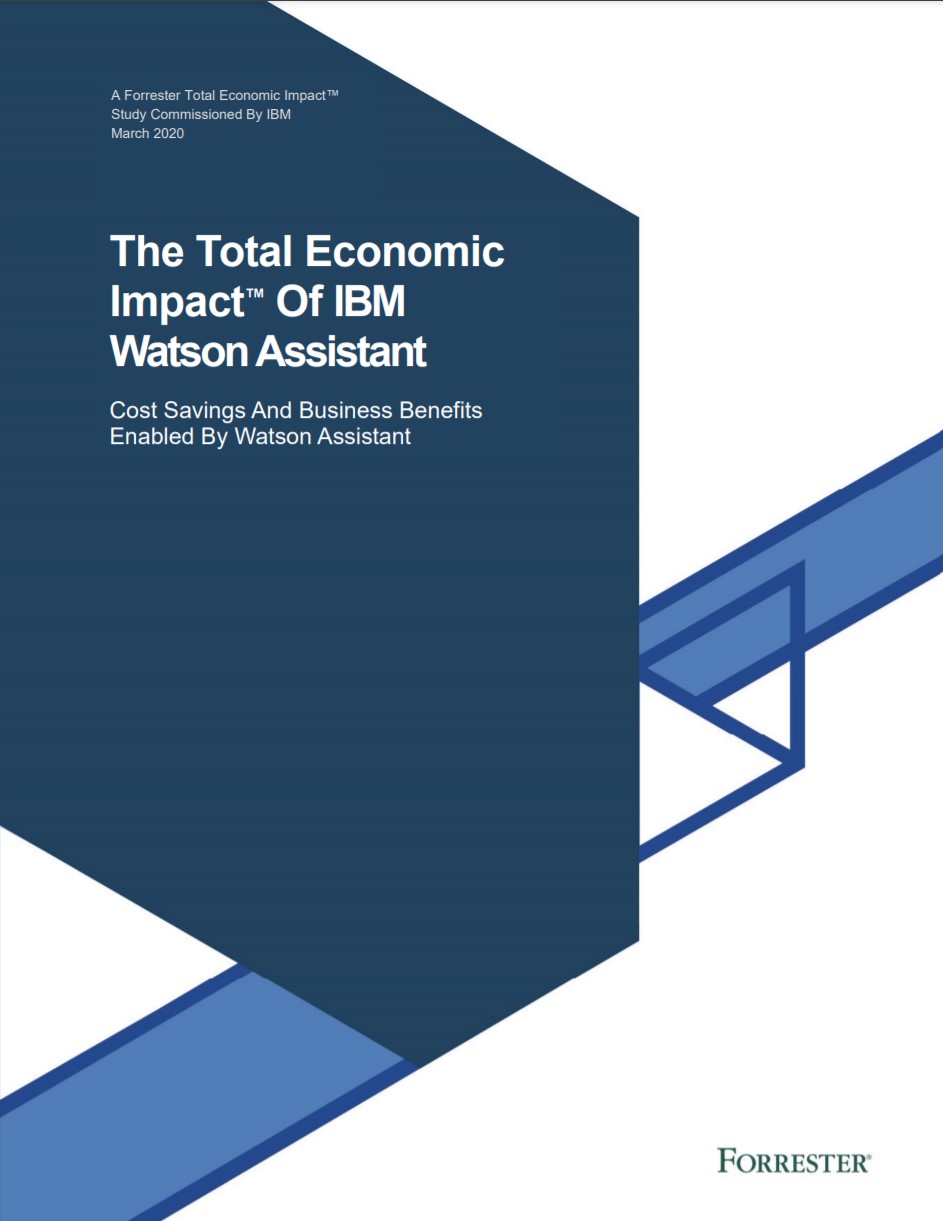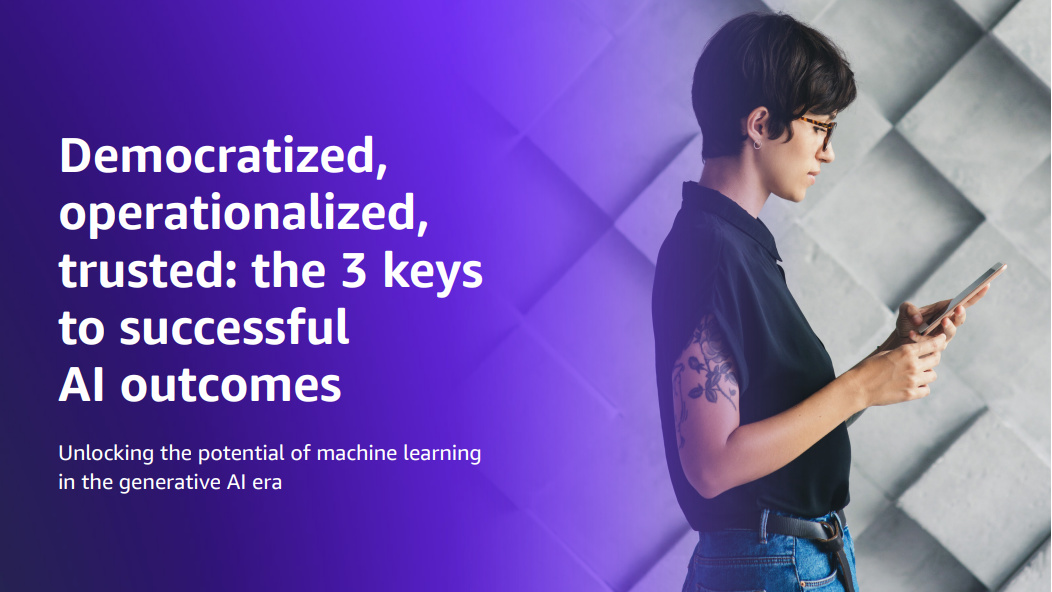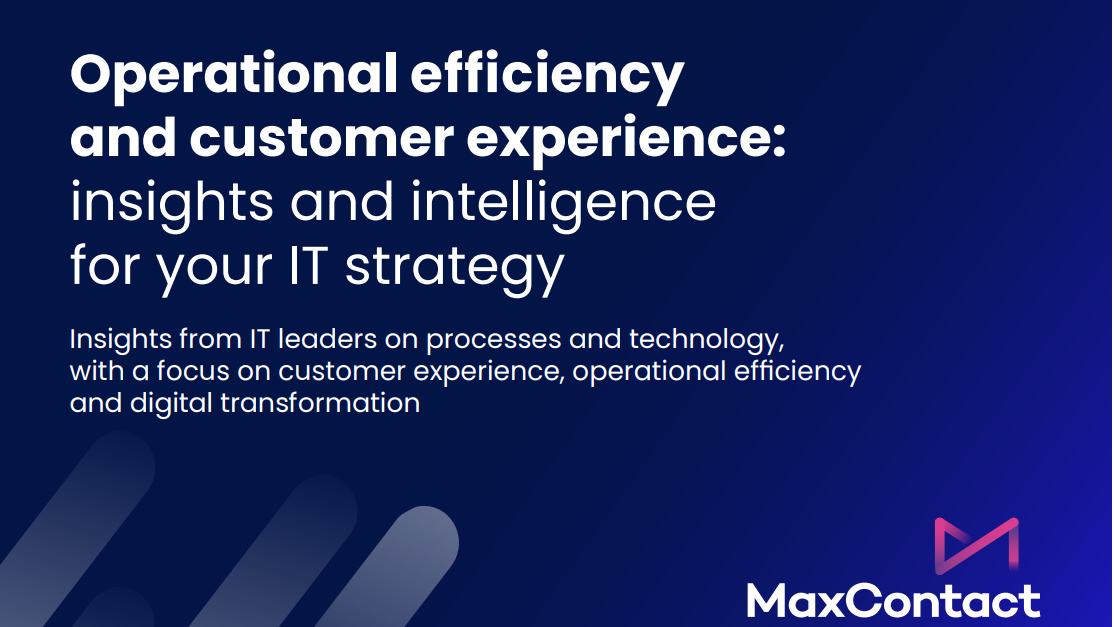Priming your business for the new age of quantum computing
As quantum computing begins to shape business processes, how will enterprises determine their quantum future?


The majority of UK business leaders (81%) expect industry disruption from quantum computing by 2030, according to EY research. That’s a bold claim for a technology that’s yet to have a proven business case. The UK, though, is betting the near future will see the practical application of quantum computing in a wide range of industries.
Last year also saw the establishment of the National Quantum Computing Centre (NQCC). Commenting on EY’s research when it was published, Dr Simon Plant, deputy director for Innovation at the NQCC, said: "Quantum computing is expected to significantly speed up the time to solution for certain tasks, addressing computational problems that are currently intractable using conventional digital technologies. As a result, the pace of development is accelerating, and the question is how and when – not if – quantum computing can address industrially-relevant use cases.”
Sparking quantum disruption
We must first quantify the claim that quantum computing will be disruptive, and define this within the context of business processes. The pharmaceutical, finance and automotive sectors, for instance, are likely to be the first adopters. Moving away from classical computing architectures could revolutionise the development of new drugs, for example, radically cutting the typical ten-year development cycle and slashing the $2 billion average cost of bringing a new drug to market.
Quantum advantage, however, is fast approaching for all businesses, according to managing director of Accenture Technology in the UK and Ireland, Maynard Williams. “The power that this new generation of machines will create will start to make these core challenges achievable, with quantum at the pinnacle of next-generation problem solving. The single biggest watershed moment for computing will be when quantum computers solve the problems that were considered quite literally intractable – making the impossible possible.”
The key to harnessing quantum computers will be to place them into context and use these machines alongside binary computers. Classic computers, indeed, have their own place in the computing landscape in such a way that all enterprises, no matter their size, can take full commercial advantage of the next technological wave.
“I hope the detailed quantum strategy will put a strong focus on industry skills in addition to research and development,” says Richard Hopkins, distinguished engineer and fellow of the Institute of Engineering and Technology from IBM. His company is one of many striving to achieve quantum supremacy alongside the likes of D-Wave and Google. "There's a lot of value the UK could derive by being the first to apply quantum computing to real-world industrial problems, but that will need us to invest in the associated skills.
The business case for quantum
The popularity behind the potential of adopting quantum commuting is vast, as research by Fujitsu and the Tecknowlodgy Group – looking closely at how quantum computing could be applied across a diverse business landscape – found. The study saw 81% of business leaders across sectors including manufacturing, life sciences, retail, transport, and utilities saying optimising business processes can help them to tackle digital transformation challenges. It’ll also allow such businesses to remain competitive in a fast-changing market.
ChannelPro Newsletter
Stay up to date with the latest Channel industry news and analysis with our twice-weekly newsletter
It’s telling that there's been a profound shift in the quantum computing discourse, with the conversation moving from theory to how to apply the technology in practice. Now the worst of COVID-19 has passed, businesses must also be more agile and innovate at speed, which includes establishing how to adopt emerging and once-gimmicky technologies like quantum computing. Business leaders now see this new frontier for computing as a tool in the arsenal towards boosting innovation, including the likes of BASF and Volkswagen, which are already using quantum algorithms within their businesses.
RELATED RESOURCE

The Total Economic Impact™ of IBM Watson Assistant
Cost savings and business benefits enabled by Watson Assistant
In March this year, HSBC detailed its intention to join the IBM Quantum Accelerator programme, which would give the bank access to the company's 127-qubit processor known as Eagle. “This technology has the potential to transform how we run areas of the bank by addressing challenges which classical computers may never be able to solve alone,” commented HSBC Bank plc and HSBC Europe chief executive officer (CEO), Colin Bell, on the announcement.
Accenture’s Maynard Williams also advises that businesses should begin their strategic planning to shape their quantum future. "The quickest action business leaders can take on the journey to quantum readiness is to begin evaluating how these technologies will shape the operations of their enterprise,” he says. “This will allow them to identify their knowledge and operational gaps, and begin filling them in before it's too late.”
Striving for a quantum advantage
The cost of investment has, until today, positioned quantum computing almost exclusively within the corporate realm. Smaller and medium-sized businesses (SMBs) and startups, however, will also be keen to tap into its potential. Is the quantum door closed to them?
Access to technology has always shaped business cases. What we are seeing in the marketplace right now is the major cloud service providers developing quantum as a service (QaaS) platforms that offer the high level of computing capability to the broadest possible audience. IBM has been offering its quantum computers through the cloud for some time, with the likes of AWS offering a rival Braket quantum cloud service and Microsoft offering Pasqal machines through Azure.
Digital Annealer, produced by Fujitsu, is another quantum-inspired technology architecture designed to help businesses solve complex combinatorial challenges beyond the capabilities of today's computers. Although not an actual deployment of quantum computing, this technology does show the way to the quantum future many businesses can see as part of their development over the next decade.
In some sectors in which there are many smaller businesses – notably financial services and fintech especially – quantum computing is seen as a potential business differentiator, and certainly a technology that could deliver commercial advantages. Despite the progress made in recent years, however, the real-world practical applications of quantum computing won’t arrive until 2030, according to McKinsey. Until then, quantum-inspired algorithms will continue to be developed and deployed in association with high performance computing (HPC) models.
Do all businesses have a quantum future? “Given the difference in the nature of this technology, organisations may wish to ‘phone a friend’ to help them develop their quantum strategy and start their initial investigations,” Deloitte’s Scott Buchholz, national emerging technology research director and CTO for government and public services tells IT Pro. “Done with the right partner, that approach will save time and speed up the learning process.”
Jan Beitner, lead data scientist at Boston Consulting Group, also advises businesses should take practical action today: "Businesses should start by examining their value chain and identifying the use cases most relevant to them. From there, they need to quantify them and, with the support of experts, work out when computers can address them. From that starting point companies can then build a roadmap to prepare for the application and integration of quantum as its potential gets unlocked by advances in the technology.”
As businesses look to re-draw their digital transformation roadmaps in the wake of COVID-19, quantum computing should be a component of that journey. As development continues, we’re not far from a breakthrough that will see quantum computers enter perhaps not the mainstream, per se, but become a transformative technology all businesses can access. The key is having a clear deployment strategy and defined business cases to harness quantum computing's unique properties.
David Howell is a freelance writer, journalist, broadcaster and content creator helping enterprises communicate.
Focussing on business and technology, he has a particular interest in how enterprises are using technology to connect with their customers using AI, VR and mobile innovation.
His work over the past 30 years has appeared in the national press and a diverse range of business and technology publications. You can follow David on LinkedIn.
-
 Bigger salaries, more burnout: Is the CISO role in crisis?
Bigger salaries, more burnout: Is the CISO role in crisis?In-depth CISOs are more stressed than ever before – but why is this and what can be done?
By Kate O'Flaherty Published
-
 Cheap cyber crime kits can be bought on the dark web for less than $25
Cheap cyber crime kits can be bought on the dark web for less than $25News Research from NordVPN shows phishing kits are now widely available on the dark web and via messaging apps like Telegram, and are often selling for less than $25.
By Emma Woollacott Published
-
 Achieving business outcomes with generative AI
Achieving business outcomes with generative AIWebinar Take your hybrid cloud journey to the next level with generative AI
By ITPro Published
-
 The three keys to successful AI and ML outcomes
The three keys to successful AI and ML outcomesWhitepaper Unlocking the potential of machine learning in the generative AI era
By ITPro Published
-
 Clarity of AI implementation is a primary concern for UK employees
Clarity of AI implementation is a primary concern for UK employeesNew research finds workers are enthusiastic about implementing AI but are in the dark over how it will happen
By Solomon Klappholz Published
-
 Operational efficiency and customer experience: Insights and intelligence for your IT strategy
Operational efficiency and customer experience: Insights and intelligence for your IT strategyWhitepaper Insights from IT leaders on processes and technology, with a focus on customer experience, operational efficiency, and digital transformation
By ITPro Published
-
 The four pillars of excellence for technology leaders
The four pillars of excellence for technology leaderswhitepaper Download this CIOs business case for integration and automation
By ITPro Published
-
 Sustainability at scale, accelerated by data
Sustainability at scale, accelerated by dataWhitepaper A methodical approach to ESG data management and reporting helps GPT blaze a trail in sustainability
By ITPro Published
-
 AI inferencing with AMD EPYC™ processors
AI inferencing with AMD EPYC™ processorswhitepaper Providing an excellent platform for CPU-based AI inferencing
By ITPro Published
-
 Bing and Edge AI hits open preview, with chat history and multimodal promise
Bing and Edge AI hits open preview, with chat history and multimodal promiseNews Bing and Edge have been given a visual boost, and will now support third-party integration
By Rory Bathgate Published